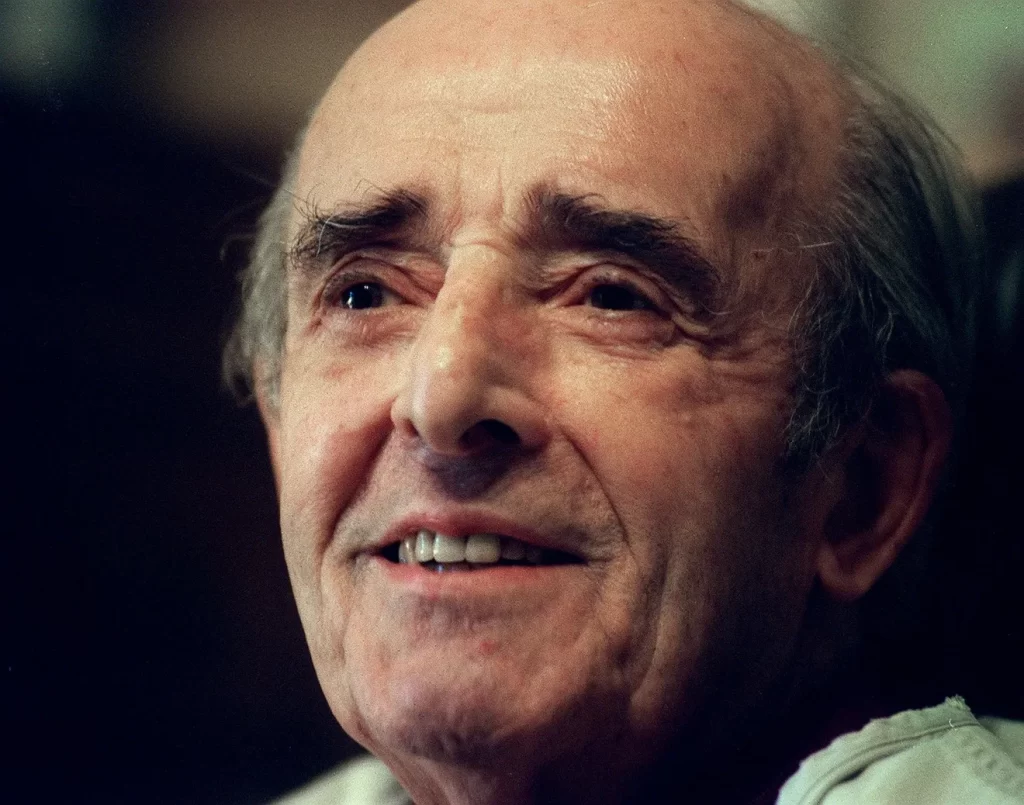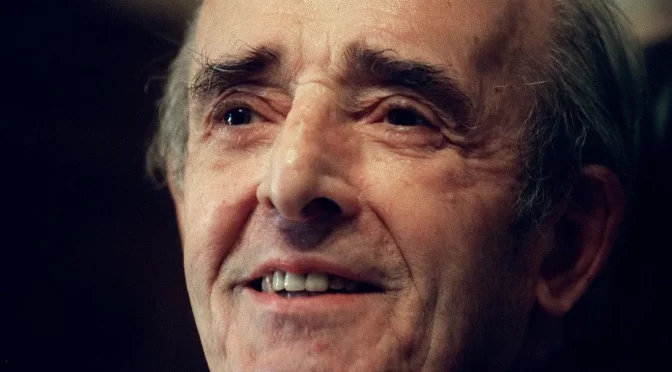“My father was a sheepherder, and his home was the hills.” The opening to Robert Laxalt’s Sweet Promised Land resonates with so many of us, capturing not only the sheepherder life of his own father, but the experience of many Basque immigrants who made new homes in the American West. I discovered Laxalt’s books when I was in college and they spoke to me; they gave voice to some of the cultural context I didn’t quite realize I was missing.

- Laxalt was born on September 25, 1923, in Alturas, California. His parents, Dominique Laxalt and Theresa Laxalt (nee Alpetche), were both from the Basque Country. Dominique was from Zuberoa and Theresa from Nafarroa Beherea. Dominique had immigrated in 1904 to the United States, becoming a sheepherder while Theresa, arriving in 1920, ultimately managed the French Hotel in Carson City, Nevada.
- After high school, Laxalt attended Santa Clara University. He left school to enroll in the military, serving in the Belgian Congo, where he contracted multiple illnesses that almost led to his death. Upon his return to the United States, he enrolled in the University of Nevada, Reno, where he began his pursuit of literature. When he graduated, he began working for the United Press International. He married Joyce Nielsen in 1949 and together they had three children.
- In 1951, he accompanied his father Dominique on a visit to his home in Zuberoa, the first time Dominique had returned since immigrating. It was a life-changing experience for Robert, leading to his 1957 novel Sweet Promised Land which told the story of his dad and, in some way, every Basque-American sheepherder. It is by far his most famous work of the more than dozen books he wrote. Many of his novels are semi-biographical, based on his family and documenting the life of the Basque sheepherder in the American west.
- Perhaps my favorite of Laxalt’s novels is A Man in the Wheatfield, which, as described by David Rio, explores the nature of evil and how the perception of evil often arises from our own fears. In all, Laxalt wrote seventeen books. I’ve been lucky enough to find a few signed editions in used books stores.
- Robert’s impact on Basque-American culture extended beyond his books. In 1961 he founded the University of Nevada Press, which still publishes many books related to Basque culture. In 1966, along with William Douglass and Jon Bilbao, he founded the Basque Studies Program at the University of Nevada, Reno.
- Laxalt was honored for his work numerous times over his career, including two nominations for the Pulitzer Prize, Nevada Distinguished Author Chair at the University of Nevada, Reno, and the State of Nevada Art Commission of the Decade Award. In 1986, he received the Golden Drum from the city of Donostia.
- Robert was the second of six children and he wasn’t the only Laxalt sibling to find success. His brother, Paul, became first Governor of Nevada and then a United States Senator, and was a good friend of Ronald Reagan.
- Robert died on March 23, 2001, at the age of 77 in Reno.
Primary sources: Estornés Lasa, Mariano [et al.]. Laxalt Alpetche, Robert. Auñamendi Encyclopedia. Available at: https://aunamendi.eusko-ikaskuntza.eus/en/laxalt-alpetche-robert/ar-87641/; Robert Laxalt, Wikipedia



Il est venu au pays basque avec sa famille environ en 1968 et a rencontré les parents à saint jean pied de port a écrit à ce moment là un article sur national géo graphics